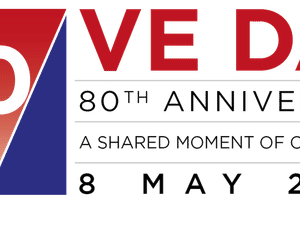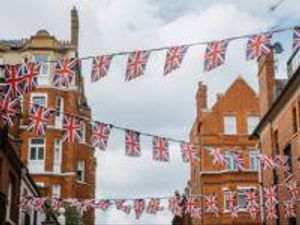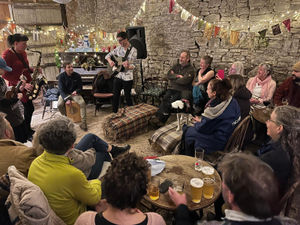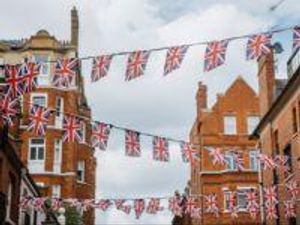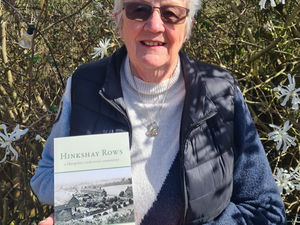Stan had the ride stuff for top cyclists
For some discerning top cyclists, Stan Lang was the man.
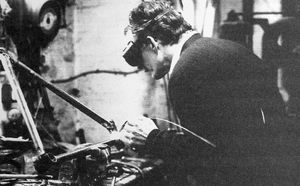
Toiling in his primitive workshop in medieval conditions in an ancient building in Madeley, he scratched a living by turning out bicycle frames by hand in the mid-1970s.
A number of prominent cyclists were customers for his Southern Cross frames, including the legendary world pursuit champion Hugh Porter, national champion Graham Bufton, track racing cyclist Reg Harris, and cycling writer John Purser.
But while the buildings which housed his workshop are famous – the old barns where King Charles II hid in 1651 while fleeing after defeat at the Battle of Worcester – Stan's own story is obscure.
However, local historian Mrs Frances Jones has now shed more light on Stan and his contribution to the cycling world in a research project which has had special meaning for her, because Stan's workshop was more or less on the doorstep of her home at King Charles Barns.
"It was right opposite my window, which is just amazing," she said.
The 17th century properties have seen a range of uses over the years, not always sympathetic – they were once used by the Coventry Gauge & Tool engineering firm – but in more recent times have been converted into homes.
Frances has lived there coming up to 15 years.
"Since I came here, I have been interested in the history of the King Charles Barns, asking people on Facebook what they know. People have continually been saying to me that there was somebody here who made bicycles. I couldn't leave it alone.
"It took me years to unearth the story. Then it suddenly came together," she said.
"I think he is very much part of the history of this town. He was born in London, came to Bilston, and ended up here, living in Brookside somewhere."
Stan was not quite a one man band, as Frances says his son Rob worked with him for a while. As well as the Southern Cross frames, the name of which was inspired by the Southern Cross star from Stan's time in Australia, he made frames called Severn Valley.
She displayed her findings at a recent local history exhibition.
"There was a limited interest in this. I think Madeley people are still interested in old Madeley, although several people looked at it and said it was fascinating."
As she delved further, she was contacted by Stan's niece, Margaret Allen, who lives in Madeley, and supplied photos and information.
Frances has also taken an interest in Coventry Gauge & Tool's time in the buildings, and thinks it's possible that there may have been some sort of connection between the firm and Stan.
It is not clear how long Stan worked in Madeley, but in any event he seems to have been somewhat of a restless entrepreneur, visiting Australia several times, and making frames there for which he is still remembered and which have become collectors' items.
Stan had emigrated with his family to Australia in the 1950s, returning when his wife became homesick. He came to Telford in 1976 and took a lease on the barns – it is not clear how much of them he occupied – from Telford Development Corporation.
He died in Birmingham in 1997, aged 80.
In an email to Margaret, John Purser, a cycling correspondent, recalled meeting Stan during his 1970s Shropshire days.
"Stan was not that organised and complained that the frames he made for Hugh Porter didn't make him any money," he said.
"So, the businessman in me kicked in and I used the back of an envelope to create a costing system and profit margin.
"'Porter won't like a price increase,' said Stan. 'Your wife won't like being broke,' I replied."
John said he continued to see him for a year or so, and wrote an article for Cycling about how Southern Cross were specialist tandem makers, which helped.
"Eventually he packed up and went back to Australia.
"As for the premises, they were pretty basic – medieval workshops. I'm not sure if I ever went in winter. It must have been grim. He was a wonderful man."
Frances, who was born in Dawley and whose maiden name is Thorpe, said: "I'm very excited about somebody who lived in obscurity, doing something wonderful. People don't hand-make things like this any more – or do they?"

